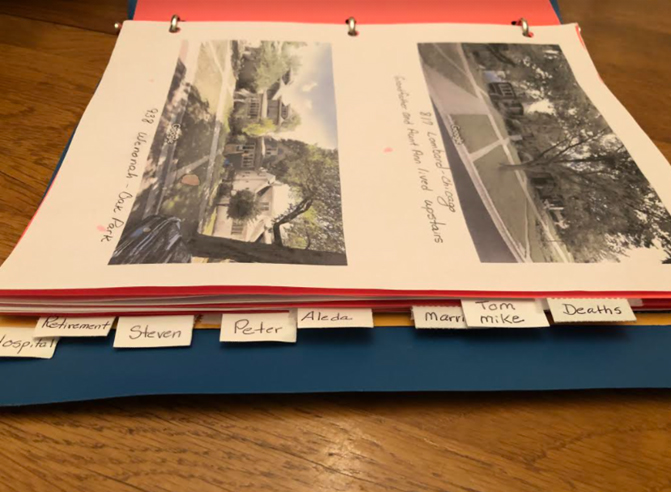“Sometimes you will never know the value of a moment until it becomes a memory.” – Dr. Seuss
Memories are what binds together our past with who we are today; and for a person with Alzheimer's, confusion around these memories can have a serious impact. One of our goals in taking care of seniors with Alzheimer's is to help them hold onto and share memories in order to make sense of day to day life.
A wonderful way to accomplish this is through the creation of a memory book, which includes photographs and brief descriptions to refer back to when a senior loved one has questions regarding his/her identity, loved ones, etc. Memory books are ideal for responding to repeated questions and for helping to clear any muddied waters. For instance, if an older adult asks who his brother is, whether he’s married (and to whom), where he used to live, etc., an easy response of, “Let’s go through the memory book,” can be very effective – and, can help with redirection as well for a senior experiencing difficult behaviors or emotions.
The book can (and should) be straightforward and basic. Simply pick out a sturdy binder, photo album, or scrapbook and place 1 or 2 photos on each page, with a brief description underneath. Include details such as:
- Close family and friends, including those from the older adult's childhood, if possible
- The older adult's workplace
- Milestones and special events
- Hobbies/interests
- Pets
- Previous residences
- And so on...
You may want to create individual sections for every category, so it will be quicker to locate a particular photograph when desired. For an even more elaborate or extensive book, you can utilize the template found here, identifying which pages you want to include that'll be most helpful for your loved one.
For more creative dementia caregiver tips and resources, call Amy’s Helping Hands at 519.915.4370. We’re also pleased to offer an in-home consultation to share more about how we can help with the specific challenges your loved one is facing. Our highly trained, compassionate dementia caregivers can:
- Encourage socialization
- Offer creative approaches to manage difficult behaviors
- Ensure safety in bathing/showering, dressing, etc. as well as reducing fall risk
- Provide trusted respite care for family caregivers to take time for self-care
- Engage older adults in enjoyable, meaningful activities
- Help with preparing meals, feeding, and clean-up
- Run errands, such as picking up prescriptions and groceries
- And so much more
Call our Alzheimer's disease care specialists today to discover how we provide the kind of dementia care Windsor-Essex and other nearby areas prefer most.















